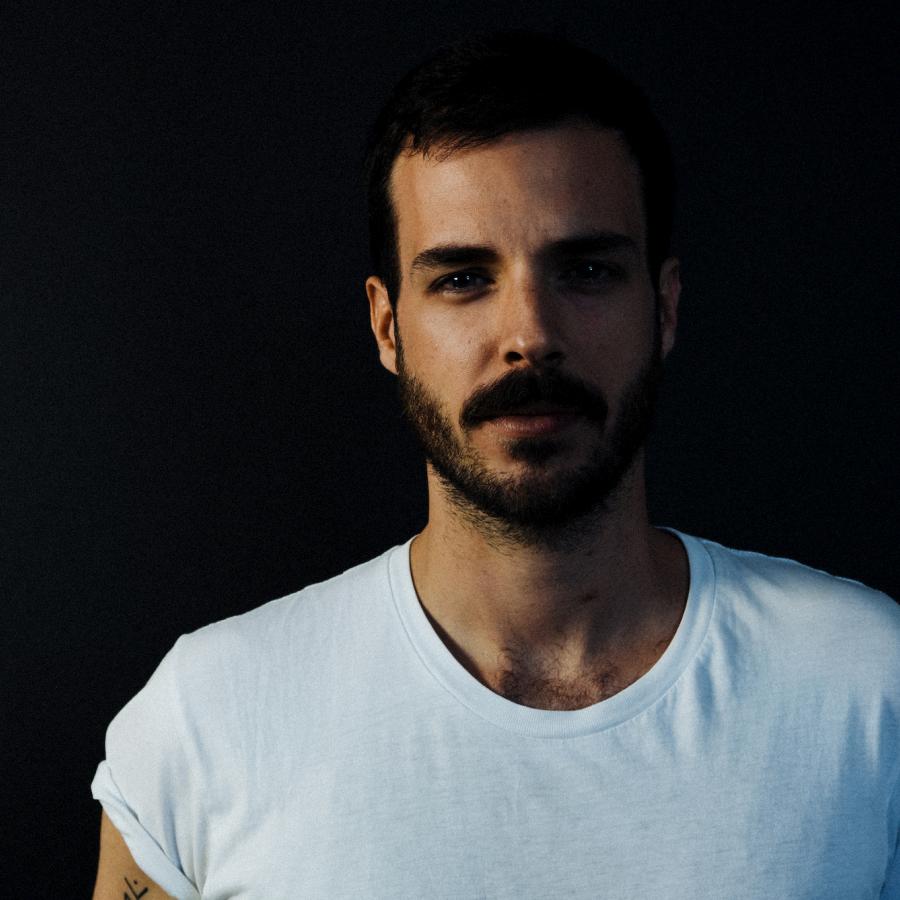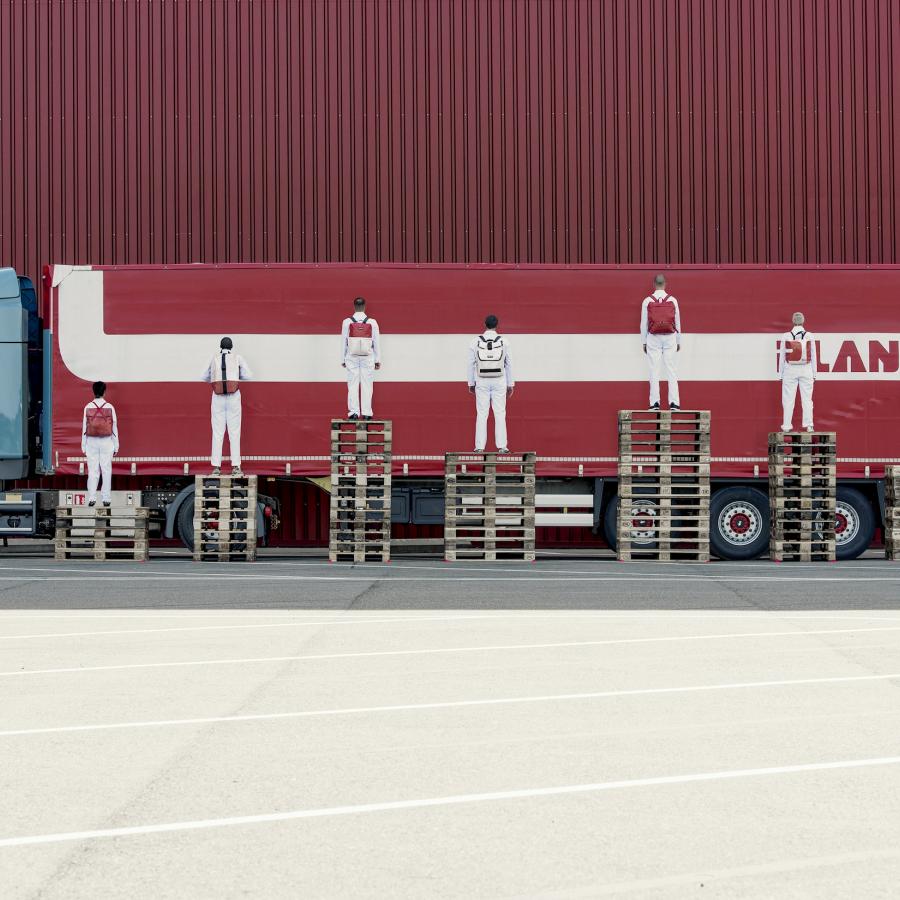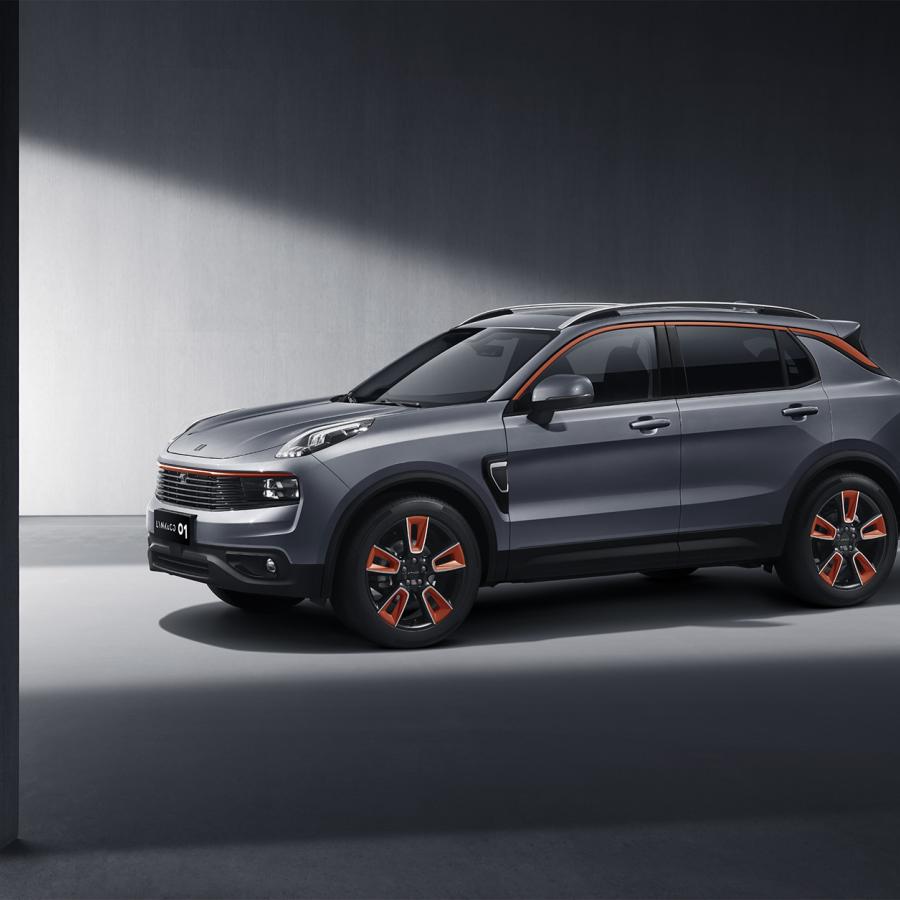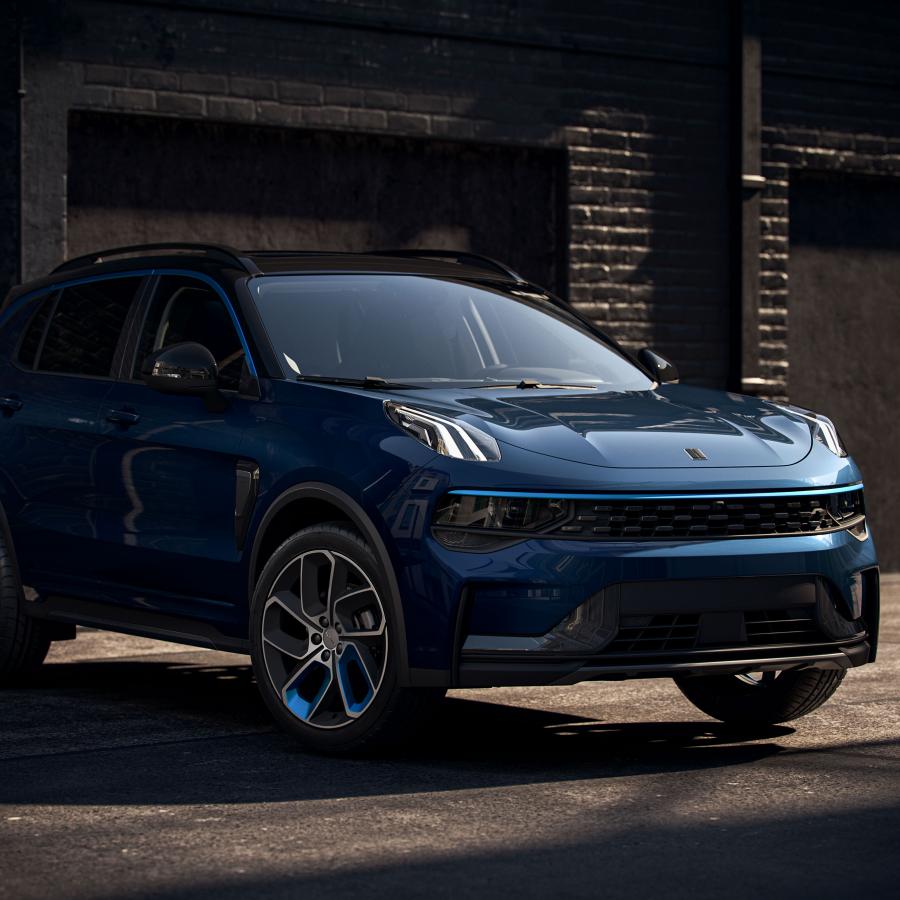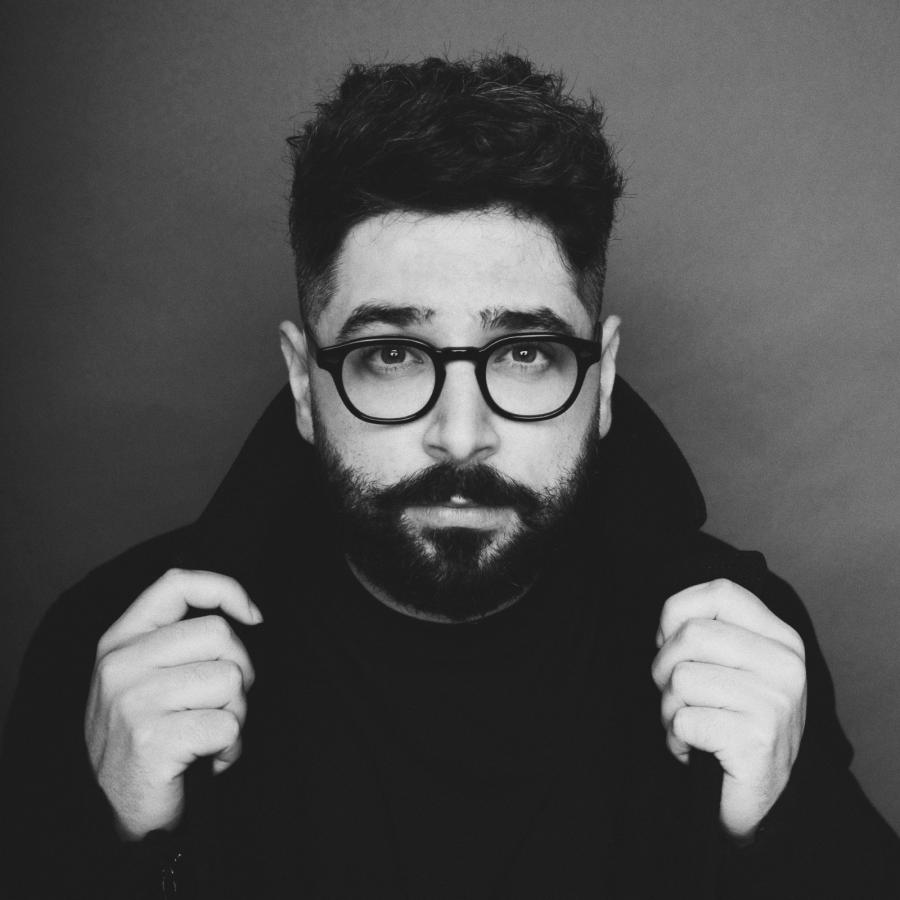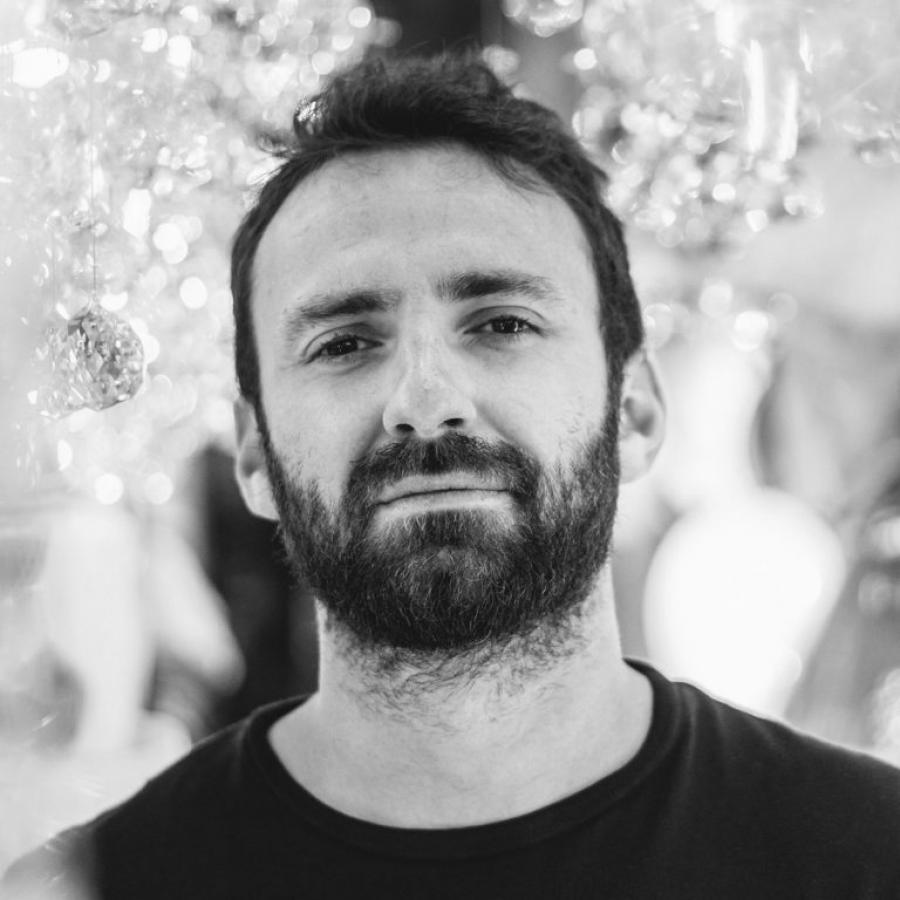by AoiroStudio
We are sharing an interview of a brand that I dearly love in terms of their products, what they stand for and how unique they are as founders. For those who doesn't know what is Freitag. Here is a brief of a company that is now the unofficial outfitter of all urban, bike riders and a brand that represents the values of Switzerland. In a few words Freitag make unique items made from recycled truck tarp, how unique is where they truly are the master of their craft.
It started when brothers Markus and Daniel Freitag were looking on the market for a good, practical and water-repellent bag to help them tackle their day-to-day. Being both graphic designers, they developed a messenger bag used from truck tarps, abandoned tubes, and car seat belts. Inspired by the design of multicolored traffic that growled right in front of their apartment in Zurich, Switzerland. This is how Freitag started, right in their living room. We had the honor to share a few questions with Oliver Brunschwiler who the Lead Link and has been working at Freitag for more than 5 years.
More about Freitag
How did the Freitag journey begin? Which product started all the buzz about the brand?
It all started in 1993 - 10 years before Greta Thunberg was born - when the graphic designers Markus and Daniel Freitag were looking for a functional, water-repellent and robust bag to hold their creative work. Inspired by the multicolored heavy traffic that rumbled through the Zurich transit intersection in front of their flat, they developed a messenger bag made from used truck tarpaulins, discarded bicycle inner tubes, and car seat belts. This is how the first FREITAG bags took shape in the living room of their shared apartment – each one recycled, each one unique. With their innovation, the two brothers triggered a seismic event in the world of bag making. Its tremors have since made themselves felt in Zurich and the cities of Europe and spread all the way to Asia, making FREITAG the unofficial outfitter of all urban, bike-riding individualists.
This very first model—which later on entered the MoMA design collection in New York—goes by the name F13 TOP CAT. 26 years later, it is still available online, with hardly any changes in the design.
 Freitag Bros - Markus and Daniel Freitag
Freitag Bros - Markus and Daniel Freitag
I’m curious to know how the process of innovating and producing products has changed over the years? Have you kept the same process basics since your beginning?
Our holistic approach in everything we do has remained the same throughout all these years. We are still asking ourselves the same questions when it comes to product development: Why source a new material for a product when you can give an old material a next life? What happens to a product at the end of its lifecycle? Over time, we defined a set of values which we call “principles”, representing the brand essence of FREITAG and serving as guidelines for everything we do, whether that be product development, production processes, or communication. Based on these values, we started a completely new chapter five years ago: clothing made from the vegetable fibers of hemp and linen, produced in Europe with minimal use of resources through a process which leaves literally nothing behind at the end of their life cycle, because the products are fully biodegradable.
At the same time, we are constantly trying to improve the way we collaborate. Three years ago, we reframed our organizational structure to become a Holacracy. In a nutshell, this means that we distribute authority and decision-making across the company in the form of roles - rather than putting it in the hands of a few supervisors and managers as in classic hierarchical structures. We believe that this structure paves the way for the company to remain innovative and agile in the future, and to attract the right talents.
And otherwise, it is still quite the same business as it used to be two decades ago: we hunt for “slightly fucked up” used truck tarps, buy them, take them apart, wash them, cut them into individual bags and accessories, and make people struggle to find their personal favorite.
What have you learned over the past few years about building a sustainable business based on using recycled materials?
One of the first things you learn is that a business model involving a disused material is not one that’s easily scaled, because there are not unlimited quantities of your raw material just sitting somewhere in a factory. And in our case, it’s even less scalable, because our tarp sourcing team takes great care in sourcing a wide variety of colours and designs, including also rare tarp colours like pink or black to guarantee a great mix for our fan base.
Rather than seeing these limits to scalability as something negative, however, we recognize that they probably helped us pursue a healthy, organic pace of growth that allowed us to preserve the authentic character of a niche brand. This pacing also helped us learn that our most relevant impact as a brand might not be to save and reuse a few hundred tons of truck tarpaulins every year, but to serve as a symbol and inspiration for a different way of producing and consuming. So, in a way, our recycling business is about a constant, endless, global introduction of the FREITAG idea.
In your opinion, what is a common mistake that most brands make these days, when it comes to talking about sustainability?
Well, you already mention the most common mistake in your question: many brands are talking about sustainability instead of taking sustainable actions. Too often, companies remain at the level of greenwashing. They try to turn non-sustainable born ideas into something just a little bit more sustainable. But adding one single more or less sustainable product to your collection here or supporting an environmental project there is definitely not enough to make a real change for the better. We would love to see a little bit more competition from brands pursuing a holistic vision of sustainability!
Can you talk a bit more about the concept for your new Sweat-Yourself retail shops? How did this idea come about, and how has the reception been to this concept so far?
The reception of our downtown microfactory has been quite overwhelming. Already, we had systems in place for FREITAG lovers to choose their individual favorite bag in person at the nearby Flagship store. But now, with the new retail shop, customers can get even further involved by assembling their bag to their own taste and getting involved in the final production steps - thus the name Sweat-Yourself-Shop. This downtown location is our lab— our experimental space where we can try out new concepts. In this case we were looking for a unique pilot retail experience to reduce used truck tarp leftovers from our factory in Zurich Oerlikon and at the same time meet the need of our fans for individual customization.
What’s next for Freitag? Do you have any upcoming projects you can share?
We believe that the concept of FREITAG and our philosophy of thinking and acting in cycles is not only limited to bags made from used truck tarpaulins - we could already see that our philosophy is transferable to other products and other materials when launching our fully biodegradable clothing line. In addition, we do not only explore products these days… but also exciting services. We recently launched our Shopping Without Any Payment (S.W.A.P) platform—a Tinder-style bag exchange that allows FREITAG customers to swap their bags with other pre-loved FREITAG bags. Users upload a photo of their Freitag item and swipe right on things that peak interest left on things that don’t. When it ends in a match the customers get to the handover negotiations and two new sustainable bag relationships are formed!
 Image Courtesy - Freitag
Image Courtesy - Freitag Image Courtesy - Freitag
Image Courtesy - Freitag Image Courtesy - Freitag
Image Courtesy - Freitag Image Courtesy - Freitag
Image Courtesy - Freitag